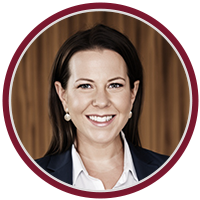There is a lot of misconception in the startup community about what a startup financial model represents and, especially, how accurate it is. When I discuss the importance of financial analysis with entrepreneurs, they push back arguing that there is no validity to the numbers not verified by the market.
They are correct about that. We won’t know if the financials are true until they are fully realized. However, this is true for ANY company, including Amazon, the most valuable company in the world.
Their confusion stems from a much deeper lack of understanding of the overall purpose of a financial model which we discuss further in this article and the corresponding video.
Unfortunately, a financial model is not a crystal ball. If it really were possible to create a financial model that would accurately predict the future, all the uncertainty regarding asset pricing and valuations would be forever gone. It would be a different world. But it is not possible, and because it is not possible, it is also not possible to predict with 100% accuracy how much money your company will make and when.
Of course, this begs a question: “Why do we need a financial model if we know it is not accurate?”
To answer that question, I propose a new paradigm: let’s think of a financial model as a map of your business plan that you can follow IN ORDER TO achieve your goals.
Imagine you are walking in a forest. It’s a warm summer day. The birds are singing, the sun is shining, and life is beautiful until you realize that you are LOST. Would you not want to have a map with you that showed you how you got there and which path to take home? Yes, of course, some of us can follow the stars or turn into Robinson Crusoe, but most of us would want to return to civilization before sundown, relatively unscarred.
Just like a regular map, a financial model maps a strategy your company is executing. It thus serves as a useful management tool that can warn you that if you are expecting to turn left (or make $1M in revenue), but you keep turning right (or losing money), it is time to either change your path (or adjust your strategy) or create an entirely new map (or pivot).
Moreover, a good map accurately reflects the terrain: all the twists and turns, lakes and swamps, mountains and desserts. Similarly, a robust financial model comprehensively maps out your business plan so that it is easy for you to see not only which parts of your strategy are working or not, but also why. This leads to better and more rigorous decision-making.
Not only can a financial model help you successfully grow your company, but it can also help you secure funding faster. Most investors look for entrepreneurs who are not only visionaries, but who also have acuity to swiftly react to market feedback and determine when a change is needed. This latter skill sets apart ventures that succeed from those that fail. A financial model can help you more effectively monitor your company’s financial performance as well as correctly evaluate the financial feasibility of each decision.
To learn how to properly model any software and service startup, take Course # 2 on www.thestartupstation.com.
Do you want our latest content delivered straight to your mailbox? Sign up to our mailing list and get a coupon to redeem for a FREE COPY of the Business Model Analysis Roadmap – Your step-by-step guide to creating CREDIBLE financial model assumptions.
About Victoria Yampolsky, CFA: Victoria Yampolsky, CFA, is the President and Founder of The Startup Station, a comprehensive resource for modeling and valuing early-stage startups. She evaluates the financial feasibility of business models and specializes in the financial modeling and valuation of pre-revenue companies. She also created a finance curriculum for early-stage founders and launched The Startup Station’s educational program in 2015. Since then, more than 1,000 founders have attended her online and in-person finance classes and learned the basics of financial modeling, valuation, and startup financing.
Previously, Victoria worked for the Deutsche Bank Research Department and performed IT consulting for CapGemini’s Financial Services Division. Victoria holds a Bachelor’s Degree, Cum Laude, in Computer Science, with a minor in Mathematics, from Cornell University and an MBA, with honors, from Columbia Business School. Victoria is also on the Advisory Board of the Computing and Information Science (CIS) Department of Cornell University.

 “Victoria is one of the smartest, and most talented financial analysts out there. She has created the financial models for 2 of my companies, to which we have raised over $20M using her financials and valuation reports. She is very professional and always makes you prove the assumptions:) She will always be a vital part to my businesses.”
“Victoria is one of the smartest, and most talented financial analysts out there. She has created the financial models for 2 of my companies, to which we have raised over $20M using her financials and valuation reports. She is very professional and always makes you prove the assumptions:) She will always be a vital part to my businesses.” “Victoria truly helped “break me in” as a CEO and startup founder. With her guidance, we’ve discovered the best routes to forming a business model according to the specific needs of my company. From monetization avenues to acquisition strategies and everything in between, Victoria patiently guided me and diligently crafted a meticulously laid-out plan and financial model I feel confident, even proud, to present to prospective investors, as it points to the breadth & scope of work we’ve accomplished together. Victoria is also extremely generous with advice, resources, and introductions. I currently work with a marketing team she introduced to me and I am very happy with them, as well.”
“Victoria truly helped “break me in” as a CEO and startup founder. With her guidance, we’ve discovered the best routes to forming a business model according to the specific needs of my company. From monetization avenues to acquisition strategies and everything in between, Victoria patiently guided me and diligently crafted a meticulously laid-out plan and financial model I feel confident, even proud, to present to prospective investors, as it points to the breadth & scope of work we’ve accomplished together. Victoria is also extremely generous with advice, resources, and introductions. I currently work with a marketing team she introduced to me and I am very happy with them, as well.” “Victoria really distilled down the financial model to the inputs that need to be discovered in order to determine business viability. Her attention to detail and experience show in taking those inputs and filling out the rest of the model. These are the real numbers that you need for investors.”
“Victoria really distilled down the financial model to the inputs that need to be discovered in order to determine business viability. Her attention to detail and experience show in taking those inputs and filling out the rest of the model. These are the real numbers that you need for investors.” “Victoria provided me with great knowledge for the financial projection and reviewed my pitch deck where she provided me with great pointers. She definitely is somebody I count as my inner circle of advisors and recommend her as the go to person for any start up.”
“Victoria provided me with great knowledge for the financial projection and reviewed my pitch deck where she provided me with great pointers. She definitely is somebody I count as my inner circle of advisors and recommend her as the go to person for any start up.” “We are a couple of engineers going through lot’s of trials and errors trying to launch our startup so meeting with Victoria was priceless in terms of getting a fresh unbiased perspective on our business model and getting advice on how to move forward.
“We are a couple of engineers going through lot’s of trials and errors trying to launch our startup so meeting with Victoria was priceless in terms of getting a fresh unbiased perspective on our business model and getting advice on how to move forward. “I have the greatest appreciation for Victoria’s contribution in analyzing financial trends and developing the monetization strategies for my business. She is not only an experienced financial analyst, but she is also very creative and gave my business many important suggestions. I felt comfortable and willing to reveal information easily, which helped make the valuation process easier. Victoria can see the big picture almost immediately, and at the same time she is a stickler for details. These attributes make her a perfect financial advisor and mentor for entrepreneurs. Further, Victoria, once given a task, is completely dedicated to it. She has a keen ability to process and synthesize information and make the right decisions, and she comes with the highest recommendation.”
“I have the greatest appreciation for Victoria’s contribution in analyzing financial trends and developing the monetization strategies for my business. She is not only an experienced financial analyst, but she is also very creative and gave my business many important suggestions. I felt comfortable and willing to reveal information easily, which helped make the valuation process easier. Victoria can see the big picture almost immediately, and at the same time she is a stickler for details. These attributes make her a perfect financial advisor and mentor for entrepreneurs. Further, Victoria, once given a task, is completely dedicated to it. She has a keen ability to process and synthesize information and make the right decisions, and she comes with the highest recommendation.” “Victoria is an amazing resource that every start-up should have. She is whip smart and diligent. We worked with her on the valuation of our company and she’s been an invaluable resource in refining our assumptions, revenue and expenditure models. If you think you understand the fundamentals of your own business model, talk to Victoria and get ready to learn so much more!”
“Victoria is an amazing resource that every start-up should have. She is whip smart and diligent. We worked with her on the valuation of our company and she’s been an invaluable resource in refining our assumptions, revenue and expenditure models. If you think you understand the fundamentals of your own business model, talk to Victoria and get ready to learn so much more!” “I had the pleasure of working with Victoria for building a working financial model for my business. Her expertise and acumen are not only impressive, but her personable nature made her a joy to work with as well. She was able to offer valuable insights and direction as we strategically built out a financial model, utilizing reliable data assumptions that translate to a usable document for my business. The result and end-product proved the value of both the time and monetary investment. I couldn’t recommend her enough as a resource for any entrepreneur looking to build out a financial model, financial roadmap and/or valuation of their enterprise.”
“I had the pleasure of working with Victoria for building a working financial model for my business. Her expertise and acumen are not only impressive, but her personable nature made her a joy to work with as well. She was able to offer valuable insights and direction as we strategically built out a financial model, utilizing reliable data assumptions that translate to a usable document for my business. The result and end-product proved the value of both the time and monetary investment. I couldn’t recommend her enough as a resource for any entrepreneur looking to build out a financial model, financial roadmap and/or valuation of their enterprise.” “Victoria Yampolsky came highly recommended by a colleague of mine and I’ve been fortunate to work with her! She completed the valuation and the financial model for our startup, EnergyPoints. Her unique framework for modeling early-stage ventures allowed us to refine our business plan and use strategy and industry standards to credibly formulate assumptions. Victoria is a Columbia Business School grad and CFA, and her company, The Startup Station, has done 100s of valuations and has an impressive track record. She presented her valuation to two national banks with our accountant, and in both scenarios, she was praised by the level of detail that went into her extensive valuation. I can’t recommend her highly enough!”
“Victoria Yampolsky came highly recommended by a colleague of mine and I’ve been fortunate to work with her! She completed the valuation and the financial model for our startup, EnergyPoints. Her unique framework for modeling early-stage ventures allowed us to refine our business plan and use strategy and industry standards to credibly formulate assumptions. Victoria is a Columbia Business School grad and CFA, and her company, The Startup Station, has done 100s of valuations and has an impressive track record. She presented her valuation to two national banks with our accountant, and in both scenarios, she was praised by the level of detail that went into her extensive valuation. I can’t recommend her highly enough!” “Victoria was a key advisor for Predictive People – as an early stage startup we had tons of questions and we needed professional guidance to sort them out. I am really glad we had her by our side to solve them all, ending with a solid business plan and financial projections. I can’t recommend her more, she’s professional, fast, empathetic, and incredibly smart, a true partner for any startup.”
“Victoria was a key advisor for Predictive People – as an early stage startup we had tons of questions and we needed professional guidance to sort them out. I am really glad we had her by our side to solve them all, ending with a solid business plan and financial projections. I can’t recommend her more, she’s professional, fast, empathetic, and incredibly smart, a true partner for any startup.” “Victoria is trustworthy, knowledgeable and customer-focused startup strategic CFO. I’ve been impressed since day 1 with the responsiveness, thoroughness and overall professionalism of Victoria. According to the traditional scenario of almost all early stage startups, the founders are involved in all processes of the company formation. So I am no exception without having a financial education, without professional Excel skills – I nevertheless decided to build a financial model on our own. Honestly, it seemed impossible. But in the end, we did it in a total of 3 weeks. I want to express my deepest gratitude for professionalism and incredible talent to motivate all of our team members. Victoria has a unique ability to get into the essence of the business very quickly, to think very flexibly and innovatively – which is very important for our startup.
“Victoria is trustworthy, knowledgeable and customer-focused startup strategic CFO. I’ve been impressed since day 1 with the responsiveness, thoroughness and overall professionalism of Victoria. According to the traditional scenario of almost all early stage startups, the founders are involved in all processes of the company formation. So I am no exception without having a financial education, without professional Excel skills – I nevertheless decided to build a financial model on our own. Honestly, it seemed impossible. But in the end, we did it in a total of 3 weeks. I want to express my deepest gratitude for professionalism and incredible talent to motivate all of our team members. Victoria has a unique ability to get into the essence of the business very quickly, to think very flexibly and innovatively – which is very important for our startup. “I was a student and client of Victoria through The Startup Station and cannot highlight enough how helpful the process was for our company in reaching our first funding milestone and personally for me. Victoria is a fantastic teacher and recommend her financial modelling courses to anyone. We also worked one to one to refine our company model/financial roadmap and Im proud of my newly developed, ninja-level Excel skills. Paraphrasing from someone famous “Clarity trumps confidence any day of the week” and it’s what I feel from working with Victoria.”
“I was a student and client of Victoria through The Startup Station and cannot highlight enough how helpful the process was for our company in reaching our first funding milestone and personally for me. Victoria is a fantastic teacher and recommend her financial modelling courses to anyone. We also worked one to one to refine our company model/financial roadmap and Im proud of my newly developed, ninja-level Excel skills. Paraphrasing from someone famous “Clarity trumps confidence any day of the week” and it’s what I feel from working with Victoria.” “Building a financial model with Victoria and The Start Up Station for a mutual client was an illuminating experience!
“Building a financial model with Victoria and The Start Up Station for a mutual client was an illuminating experience! “Victoria is a rare find in the startup world. She’s brilliant with startup financial strategies and has this no-nonsense work ethic that proves to deliver results. Victoria worked with a participant of 2020 Startups, a startup founder, and within a couple of months the founder raised capital. Victoria has done several workshops and speaking engagements at 2020 Startups and is always insightful and held in the highest regard by the audience.”
“Victoria is a rare find in the startup world. She’s brilliant with startup financial strategies and has this no-nonsense work ethic that proves to deliver results. Victoria worked with a participant of 2020 Startups, a startup founder, and within a couple of months the founder raised capital. Victoria has done several workshops and speaking engagements at 2020 Startups and is always insightful and held in the highest regard by the audience.” “Victoria and The Startup Station Team were absolute game-changers for Ovaterra. Victoria served as my right-hand CFO through fundraising, M&A, liquidity crises and more — always guiding the ship with calm, detail-oriented and strategic advice. I would recommend her and her team to any Founder or executive who needs a strategic, fractional CFO to guide your business to the next level.”
“Victoria and The Startup Station Team were absolute game-changers for Ovaterra. Victoria served as my right-hand CFO through fundraising, M&A, liquidity crises and more — always guiding the ship with calm, detail-oriented and strategic advice. I would recommend her and her team to any Founder or executive who needs a strategic, fractional CFO to guide your business to the next level.” “Victoria, we raised $1.4M! It’s finally
“Victoria, we raised $1.4M! It’s finally  “In business, and especially with startups, getting to a place of clarity around the business and financial models can be challenging even for the most experienced professional. Victoria brings the right mix of business and financial know-how and quickly understands the moving pieces. As such, she’s able to provide an excellent product, a deeper sense of understanding about the project based on its’ needs, and a sense of calm and assurance that the challenges faced will be dealt with in a way that drives growth.”
“In business, and especially with startups, getting to a place of clarity around the business and financial models can be challenging even for the most experienced professional. Victoria brings the right mix of business and financial know-how and quickly understands the moving pieces. As such, she’s able to provide an excellent product, a deeper sense of understanding about the project based on its’ needs, and a sense of calm and assurance that the challenges faced will be dealt with in a way that drives growth.” “I had the pleasure of working closely with Victoria as fractional CFO of our startup. Her expertise in business and financial modeling is truly exceptional. Victoria played a pivotal role in helping our company think through every aspect of our business, and her ability to create a comprehensive model was nothing short of impressive. She not only provided a clear plan for our future but also identified areas where we could improve and grow.
“I had the pleasure of working closely with Victoria as fractional CFO of our startup. Her expertise in business and financial modeling is truly exceptional. Victoria played a pivotal role in helping our company think through every aspect of our business, and her ability to create a comprehensive model was nothing short of impressive. She not only provided a clear plan for our future but also identified areas where we could improve and grow. “If you’re raising capital and want to shine when pitching to investors, I highly recommend you choose Victoria Yampolsky and the Startup Station as your resource for high performance results. Victoria is extremely well versed in all aspects of raising capital and the startup landscape. She provides clients with outstanding tools, applicable advice and thoughtful insights to support their fundraising efforts.
“If you’re raising capital and want to shine when pitching to investors, I highly recommend you choose Victoria Yampolsky and the Startup Station as your resource for high performance results. Victoria is extremely well versed in all aspects of raising capital and the startup landscape. She provides clients with outstanding tools, applicable advice and thoughtful insights to support their fundraising efforts.